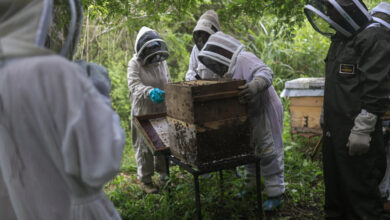Is Climate Change Altering the Behavior of Some Animal Species?
A recent study by the University of Helsinki and Lancaster, that involved more than a hundred animal species, revealed that human-driven changes in the environment have a significant impact on animals’ activity exploring the environment.

The Woman Post | Catalina Mejía Pizano
Listen to this article
It is no secret that the conduct of animals may suffer alterations due to climate change. Some of the ways they can respond are by migration, adaptation, and in extreme cases, even death. As mentioned by the WWF, some of the animals that are most affected by climate change are polar bears, snow leopards, giant pandas, tigers, monarch butterflies green sea turtles, African elephants, mountain gorillas, Asian elephants, and cheetahs.
Biologists have mentioned in several publications, that some of the animals which have suffered behavioral changes due to climate change are, leatherback turtles, pikas (small animals native to North America), monarch butterflies, puffins, polar bears, and plankton. For instance, the Scottish Association for Marine Science has claimed that the melting of sea ice is affecting the wider food chain, as zooplankton feed on the algae growing on sea ice. Leatherback turtles have also been affected by rising ocean temperatures causing their journeys from nesting to feeding, to become much longer.
According to the study by the University of Helsinki and Lancaster, humans are inducing changes in the environment at an accelerated rate. One of the main objectives of the researchers was to investigate the capacity of animals to adapt to human-induced environmental change and to find out what changes can occur in the expression of animal traits. Some of the groups of animals that were included in the study were fish, birds, crustaceans, and mammals. Lizards, insects, and amphibians were also represented.
Also read: OUR PLANET WILL BE UNRECOGNIZABLE BY 2500
It is worth highlighting that the behavioral traits that were analyzed in the study, were aggression, activity, sociability, boldness, and exploration of their environment. Their results showed that all of these traits were affected by environmental change driven by humans. However, not all of the traits were affected in the same way. The behavioral trait which suffered the most was the capacity of animals to explore their environment. The researchers also remarked that although the behavior of animals is always affected by alterations in the environment, climate change creates the greatest variations in their conduct.
Besides climate change, the modeling included different forms of human-induced environmental alterations, such as changes in carbon dioxide concentration and nutrient level, the presence of alien species. It also considered other biotic changes that can be driven by human activities, such as urbanization. The study also mentions that modifications in the activity or other behaviors of animals may be a signal of the first change in animals induced by climate change.
"Behavioural change can serve as a buffer with which animals avoid the immediate negative effects of environmental change. For instance, such change can compensate for low reproductive success or increased mortality caused by environmental change. By changing their behavior, animals can also gain more information on the altered environment."




